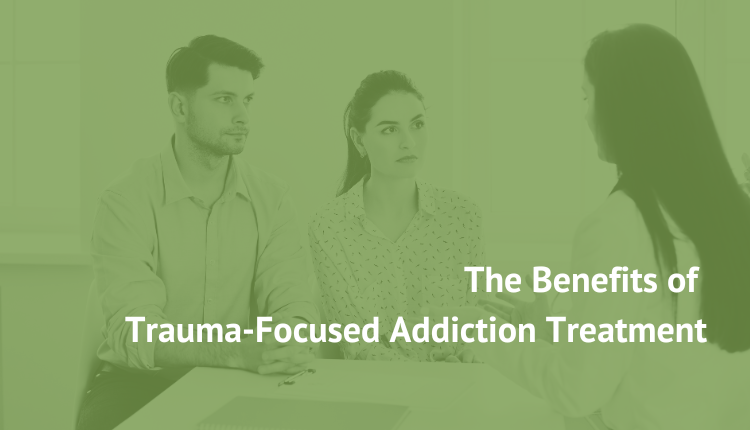Trauma can have a profound and lasting impact on an individual’s mental health and well-being, often requiring specialized care to fully address. Trauma-focused addiction treatment is designed to meet these unique needs, offering comprehensive support for individuals dealing with both addiction and the aftereffects of trauma. This approach emphasizes treating trauma as a core factor in the recovery process, providing a path toward healing and long-term sobriety. Below, we explore the key elements and benefits of trauma-focused addiction treatment and why it is critical for those facing these challenges.
What is Trauma-Focused Addiction Treatment?
Trauma-focused addiction treatment helps individuals recover from both substance use disorders and underlying trauma. These programs offer intensive therapy while allowing participants to maintain their daily responsibilities, like work or school. Unlike inpatient programs, trauma-focused outpatient care provides structured treatment without the need for an overnight stay, making it more accessible.
The goal of these programs is to help individuals process trauma, develop healthy coping skills, and regain emotional well-being. Therapies like cognitive-behavioral therapy (CBT), dialectical behavior therapy (DBT), and eye movement desensitization and reprocessing (EMDR) are commonly used to address trauma and addiction together.
The Mental Health Effects of Trauma
Trauma is a complex emotional response to deeply distressing events. These events can overwhelm an individual’s ability to cope, leading to long-lasting psychological consequences. Trauma is categorized into three main types:
- Acute trauma occurs after a single event, such as an accident, assault, or natural disaster.
- Developmental trauma, often called complex trauma, results from ongoing exposure to traumatic experiences, especially during childhood, such as abuse or neglect.
- Chronic trauma stems from repeated exposure to traumatic events over a longer period.
The mental health effects of trauma can be severe, including conditions like anxiety, depression, PTSD, and emotional dysregulation. These symptoms can disrupt a person’s ability to function normally and significantly affect relationships, work, and daily life. Trauma can also lead to physical symptoms, including chronic pain, fatigue, or heightened stress responses. Research shows that “men with a SUD are 7.2 times more likely to have PTSD than those without a SUD; women with a SUD are 12.4 times more likely to have PTSD than those without a SUD” (Giacomucci & Marquit, 2020). This correlation underscores the need for specialized care that addresses both addiction and underlying trauma in a comprehensive manner.
Trauma-Related Disorders
Trauma can lead to a range of mental health disorders, with Post-Traumatic Stress Disorder (PTSD) being one of the most recognized. Other trauma-related disorders include:
- Acute Stress Disorder (ASD): Similar to PTSD, but it occurs shortly after the traumatic event and lasts for a few weeks.
- Complex PTSD (C-PTSD): Results from prolonged exposure to trauma, such as ongoing abuse or violence. Includes symptoms like difficulty regulating emotions and forming healthy relationships.
- Adjustment Disorders: These occur in response to significant life changes or stressors and can manifest as anxiety, depression, or behavioral issues.
Understanding these disorders is key to recognizing how trauma affects individuals differently and tailoring treatment to address these specific conditions.
Core Components of Trauma-Focused Addiction Treatment
Trauma-focused addiction treatment is built around several key components to provide comprehensive care:
- Individual Therapy: Sessions with a therapist help individuals process traumatic events and develop coping strategies. Therapies like EMDR, CBT, and DBT are commonly used to support trauma recovery.
- Group Therapy: Group sessions foster a supportive environment where individuals can share experiences and learn from others facing similar challenges. This sense of community plays a significant role in the healing process.
- Holistic Therapies: Approaches like yoga, mindfulness, and art therapy are often incorporated to address the mind-body connection and promote overall well-being.
- Psychoeducation: Educating individuals about trauma and its effects helps them understand their symptoms and empowers them to manage these challenges effectively.
- Family Involvement: Including family members in the treatment process, when appropriate, can help improve communication and create a more supportive home environment.
Benefits of Trauma-Focused Addiction Treatment
The benefits of trauma-focused addiction treatment extend beyond traditional therapy methods. They address both the root cause of addiction and its symptoms. Some of the key advantages include:
- Comprehensive Care: Trauma-focused programs offer a holistic approach that addresses the physical, emotional, and psychological aspects of recovery.
- Personalized Treatment Plans: These programs tailor treatment to each individual’s needs, ensuring more effective and meaningful care.
- Improved Patient Engagement: By creating a safe and supportive environment, trauma-focused care helps individuals stay engaged in their recovery.
- Flexibility: Outpatient programs allow participants to continue with daily responsibilities, making treatment more accessible and less disruptive to their lives.
- Relapse Prevention: Trauma-focused care equips individuals with tools to handle triggers and stressors, reducing the risk of relapse.
Medication Management in Trauma Recovery
In some cases, medication can be a helpful tool in managing the symptoms of trauma. Medications for anxiety, depression, or sleep issues can complement therapy, creating a more stable foundation for recovery. Regular monitoring ensures that these medications are used effectively, and adjustments can be made as needed based on individual progress.
Navigating the Challenges of Trauma Recovery
Individuals seeking trauma-focused addiction treatment often face challenges, including internal struggles with guilt or shame, as well as societal stigma. However, acknowledging the need for help is an important first step. Trauma-focused programs create a supportive environment where individuals can work through their past experiences and learn to manage their symptoms.
At New Paradigm Recovery, we offer trauma-focused addiction treatment as part of our comprehensive outpatient services. Our programs are designed to provide the care and support needed to address both addiction and trauma. If you or someone you know is struggling with the effects of trauma and addiction, we invite you to explore the benefits of our tailored treatment options. Unlike other addiction treatment centers in Northern Virginia and Washington, DC, who claim to specialize in dual-diagnosis cases, New Paradigm actually has two separate licenses; we are fully licensed as an addiction treatment provider and also fully licensed as a mental healthcare provider. We are uniquely qualified to treat underlying mental health issues like trauma while we address substance use disorders.
If you or someone you know is seeking addiction treatment or outpatient rehab near Washington, DC, contact New Paradigm to learn more.
Works referenced:
Giacomucci, S., & Marquit, J. (2020). The effectiveness of trauma-focused psychodrama in the treatment of PTSD in inpatient substance abuse treatment. Frontiers in Psychology, 11, 896.

